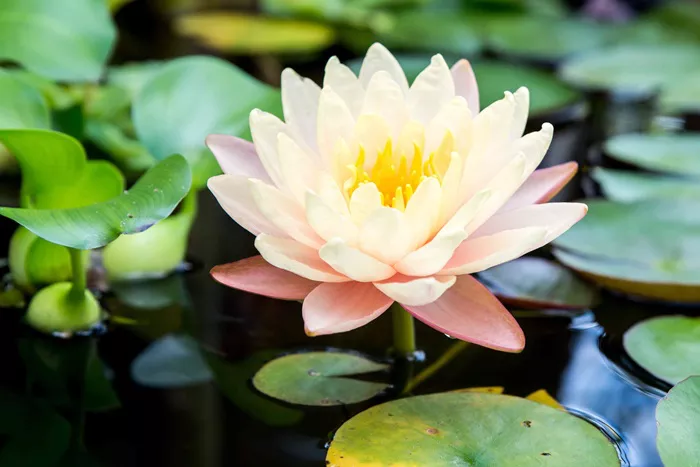A recent study has revealed how the night-blooming waterlily, Nymphaea prolifera, uses its floral scents to deter aphids. Researchers investigated the production and ecological function of these floral compounds, providing new insights into the interactions between early plants and insects. This discovery may lead to sustainable methods for pest control in agriculture.
While floral scents are well-known for attracting pollinators, recent research indicates that they may also act as defense mechanisms. In early flowering plants, certain volatile compounds evolved to repel herbivorous insects, helping the plants survive. Given the challenges plants face from herbivores, more research is needed to understand how these scents aid in plant adaptation and protection in various environments.
The study was conducted by scientists from Nanjing Agricultural University and the Tea Research Institute of the Chinese Academy of Agricultural Sciences. Published on November 6, 2023, in Horticulture Research (DOI: 10.1093/hr/uhad237), it focuses on how the floral scents of Nymphaea prolifera guard the plant against aphid infestations.
Using gas chromatography-mass spectrometry (GC-MS), the researchers analyzed the scent compounds emitted by Nymphaea prolifera. They identified anisole, veratrole, and guaiacol as the main volatile compounds released by the flowers. These compounds exhibited distinct patterns of emission in both space and time. They are produced by enzymes called O-methyltransferases (OMTs), which modify precursor molecules to create the plant’s defensive scents. Bioassays confirmed that these compounds effectively repelled aphids from the mother flowers, while the daughter and granddaughter flowers were more vulnerable to infestations. This suggests that early flowering plants have evolved mechanisms to defend against insect herbivores.
“Our findings indicate that floral scents play a more extensive ecological role than merely attracting pollinators,” said Dr. Yifan Jiang, the lead researcher. “The ability of the waterlily to repel aphids with volatile compounds demonstrates how plants can defend themselves while still supporting beneficial insects. This dual role could significantly impact future pest management strategies in agriculture.”
This research has significant implications for future pest control methods. By utilizing the natural defense mechanisms of plants like Nymphaea prolifera, environmentally friendly strategies can be developed to protect crops from pests. Furthermore, a better understanding of the ecological roles of floral scents may lead to advances in plant breeding aimed at enhancing resistance to herbivores.
Related topics:
- Burnham Area Flower Club to Host Christmas Floral Art Evening
- Scientists Believe Controlling Invasive Plants Can Reduce Ticks and Tick-Borne Diseases
- Checking for Signs of Drought Stress in Trees and Plants


